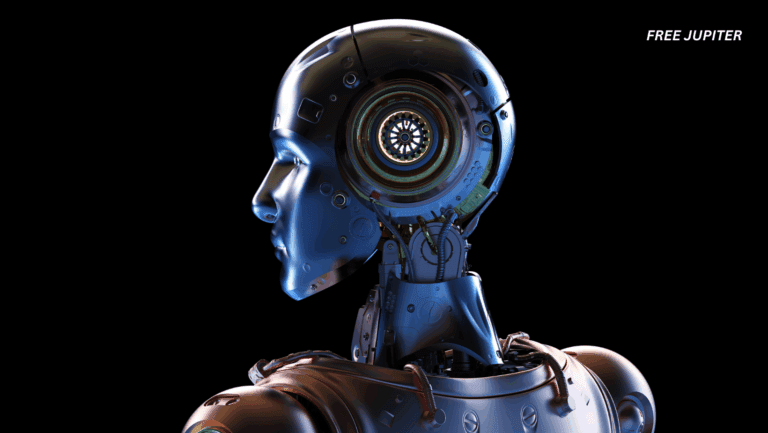Everyone carries a version of their younger self deep inside — a small, tender part that remembers every wound, every triumph, and every moment of uncertainty. This “inner child” often influences how one reacts, loves, and copes with life’s ups and downs. When that part of us still seeks comfort, it shows up in subtle, sometimes surprising ways. Here are 15 signs your inner child may still be asking for reassurance — not as a flaw, but as a quiet call for healing.
1. Rejection Feels Like a Personal Disaster
When rejection hits harder than it should — whether it’s being turned down for a job, ignored by a friend, or feeling left out — it may not be about the situation itself. It’s often your inner child remembering the sting of being overlooked or unappreciated. Psychologists like Dr. John Gottman have noted that early emotional experiences shape how we respond to rejection in adulthood. Recognizing this pattern is the first step toward self-soothing and developing emotional resilience.
2. Perfection Feels Like the Only Safe Option
Being a perfectionist often masquerades as ambition, but it can stem from a deep need for approval. Those who grew up believing “good” was never quite enough may still carry the pressure to be flawless. This endless striving can drain joy from achievements and make mistakes feel unbearable. Learning that imperfection doesn’t equal failure allows for a gentler, more balanced way of living.
3. Trust Feels Risky
If trusting others feels like stepping onto thin ice, your inner child might be reminding you of past betrayals or instability. Psychologist Dr. Brené Brown emphasizes that trust is built through consistent, small acts — something many didn’t experience consistently in childhood. Building trust as an adult often begins with acknowledging where the fear comes from and allowing safe, genuine connections to form gradually.
Read more: Psychiatrist Reveals Why Empaths Have a Higher Risk Of Emotional Fatigue
4. New Situations Spark Anxiety
Walking into unfamiliar territory can feel like stepping into chaos when your inner child equates change with danger. Children rely on predictability for safety, and adults who grew up without it may still seek control in uncertain moments. This can lead to avoidance or hesitation to embrace new experiences. With self-compassion, anxiety can transform into curiosity, allowing new experiences to become opportunities rather than threats.
5. The Inner Critic Never Sleeps
That relentless inner voice constantly pointing out flaws may not be you — it’s your inner child echoing old criticism. Dr. Kristin Neff, who studies self-compassion, explains that harsh self-talk mirrors how one was once spoken to or disciplined. Replacing criticism with kindness doesn’t mean ignoring mistakes — it means treating yourself with the same patience you would offer a child still learning.
6. Abandonment Feels Like the End of the World
The fear of being left alone can be deeply rooted in early emotional neglect or instability. Adults who felt unsupported as children might cling tightly to relationships, fearing loss at every turn. This fear can lead to anxiety, over-dependence, or even pushing others away to avoid being hurt first. Recognizing this cycle helps build emotional security and trust in both self and others.
7. Decisions Feel Paralyzing
If choosing between two options feels like a monumental task, it might be because your inner child never learned that their opinions mattered. Growing up in environments where autonomy wasn’t encouraged can make adults doubt their judgment. Practicing small daily decisions — like choosing what to eat or wear — can help rebuild that lost trust in oneself, one choice at a time.
8. Sensitivity Feels Like a Curse
Being highly sensitive isn’t a weakness; it’s often the sign of an inner child who once had to be hyper-aware of emotions to stay safe. This sensitivity can make criticism sting and conflict feel overwhelming. But when nurtured, it becomes emotional intelligence — the ability to empathize deeply and read subtle emotional cues. Learning to balance sensitivity with self-protection can transform vulnerability into strength.
Read more: Holding Hands With Someone You Love Immediately Eases Pain and Stress, Study Says
9. Conflict Feels Unsafe
If you tend to avoid arguments at all costs, even when you’re in the right, your inner child may associate conflict with danger. Those who grew up around explosive emotions might equate disagreement with rejection or punishment. But healthy conflict is actually a sign of mature relationships. Learning to express needs calmly and respectfully helps heal the fear that standing up for yourself means losing love.
10. Constant Reassurance Feels Necessary
The constant need for others to validate your choices or feelings often points to a childhood where approval was scarce or conditional. This pattern can make adults dependent on others for self-worth. Building internal validation — reminding yourself that your feelings and opinions are valid — helps cultivate confidence that doesn’t rely on external approval.
11. Self-Esteem Feels Fragile
If you struggle to see your worth, focusing only on flaws instead of strengths, your inner child might still be echoing messages of inadequacy. Early criticism or neglect can warp one’s sense of self. Rebuilding self-esteem means rewriting those old narratives: recognizing that worth isn’t earned through perfection, but inherent in simply being.
12. Boundaries Feel Impossible to Set
Saying “no” might feel uncomfortable if your boundaries were dismissed growing up. Many people fear setting limits because they associate it with rejection or guilt. Yet, boundaries are acts of self-respect — invisible lines that protect your emotional energy. Learning to say “no” kindly but firmly can feel uncomfortable at first, but it’s one of the most empowering steps toward self-healing.
13. Failure Feels Like a Personal Defeat
If failing makes you feel worthless, it’s likely your inner child still equates mistakes with shame. In some childhoods, success was rewarded while failure brought punishment or disappointment. As adults, this can lead to procrastination or perfectionism. Reframing failure as part of learning — rather than evidence of inadequacy — helps dissolve this fear and fosters resilience.
14. Letting Go Feels Impossible
Holding onto past hurts or grudges might be your inner child’s way of staying safe. It’s as if that younger self believes that letting go means letting it happen again. But clinging to pain only keeps old wounds open. Practicing forgiveness — not as a favor to others, but as a gift to yourself — can free emotional space for joy and peace.
15. You Struggle to Feel Truly Safe
Even in calm environments, some people feel an underlying sense of unease — a quiet tension that never quite fades. This often comes from growing up in unpredictable or unsafe spaces, where vigilance was necessary for survival. As adults, this constant alertness can lead to exhaustion and difficulty relaxing. Creating a sense of safety now — through comforting routines, therapy, or supportive relationships — helps the inner child finally rest.
Read more: Pretty Much Every Man Is Afraid To Lose A Woman With These 12 Specific Traits
Healing the Inner Child
Recognizing these patterns isn’t about blaming the past — it’s about understanding it. The inner child doesn’t disappear with age; it simply waits for acknowledgment. Healing begins when you stop judging your reactions and start listening to them. By offering the compassion, validation, and patience that may have been missing early on, you give that younger part of yourself what it always needed: reassurance that it’s safe to grow, explore, and be loved — just as you are.
Featured image: Freepik.
Friendly Note: FreeJupiter.com shares general information for curious minds. Please fact-check all claims and double-check health info with a qualified professional. 🌱










